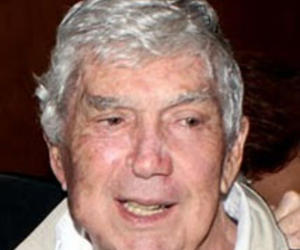Up to $40 million spent to prosecute Posada Carriles
- Submitted by: manso
- Politics and Government
- 03 / 17 / 2011

Along the Malecón. Wednesday, March 16, 2011. Prosecutors have spent $25 million to $40 million to prosecute Luis Posada Carriles, journalist Ann Louise Bardach says in a story published today in Foreign Policy magazine.The anti-Castro militant's legal team has spent "likely half that," writes Bardach, who is scheduled to take the stand today in El Paso as a key government witness against Posada Carriles.
In the Foreign Policy piece, Bardach says being forced to testify "has now brought me into the middle of a case I want nothing to do with."
Lawyers are expected to grill her about a series of stories about Cuban exile militants that she co-authored in 1998.
Bardach says her "forced participation" is an affront to the First Amendment and may discourage some sources from talking to journalists in the future.
Already, she writes, the case has taken a toll on her personal life. Some critics, she says, have called her everything from "Fidel Castro's lover" to a "pot-smoking lesbian."
In 2005, Bardach writes, one of Posada Carriles' lawyers "told me that if the government made me testify, he would use whatever weapons he could lay his hands on to attack me. 'Sort of a like a crucifixion,' he quipped, with a laugh."
Bardach writes: Although I have published widely for more than 30 years, I am rather old-school about journalism and prefer to write in the third person. I have long guarded my privacy -- family, marriage, health, and the rest. I am neither a public confessor nor an appreciator of reality shows. So this will not be pleasant.
Already much of what I cherished as my personal privacy has been surrendered to government subpoenas: work files, interview tapes, even medical records (though much has been, blessedly, sealed). Moreover, in late January, the computer expert who maintains my computers informed me that my laptop had been methodically hacked by someone very "sophisticated" who removed its security patches and installed data to prevent future security patches from being installed.
Then there are the actual costs. Estimates for the Justice Department's prosecution range from $25 million to $40 million, and likely half that for the defendant's high-powered legal team. While both sides appear to have an infinite amount of financial resources, the New York Times, which retained media attorney Tom Julin of Hunton & Williams, does not.
This is hardly a welcome expense during the most severe crisis and transformation in the media business.There are other costs to the Fourth Estate. Media institutions need worry now that their reporters can be summoned to make the case for prosecutors whose own investigators falter through laziness or negligence. More than one reporter has told me that he no longer keep notes or tapes anymore. The message is not ambiguous: Destroy your materials or risk being compelled to testify against sources. Consider this loss to archivists and historians.
Sometime soon, a jury will hear excerpts from audio tapes (about five to six hours) that I made during my time with Posada (which was roughly 13 hours over several days in June 1998). They are battered, old RadioShack tapes -- with scores of stops and starts, in deference to Posada, who set the ground rules for the interview -- that were handled by a half dozen transcribers over the years, before being subpoenaed as evidence. The government will play their favorite bits, and then the defense will likely ferret out whatever they conclude might have an ambiguous meaning, though the tapes are mostly in English. (Posada worked for Firestone in Akron, Ohio, as a young man and later was the translator for Eugene Hasenfus and other U.S. soldiers during the Iran-Contra affair.)
At some point after the trial is over, Bardach says she'll publish the complete transcript of her interviews.Then readers can render their own verdict in the thorny case of Luis Posada Carriles.
Source: http://alongthemalecon.blogspot.com/
Comments